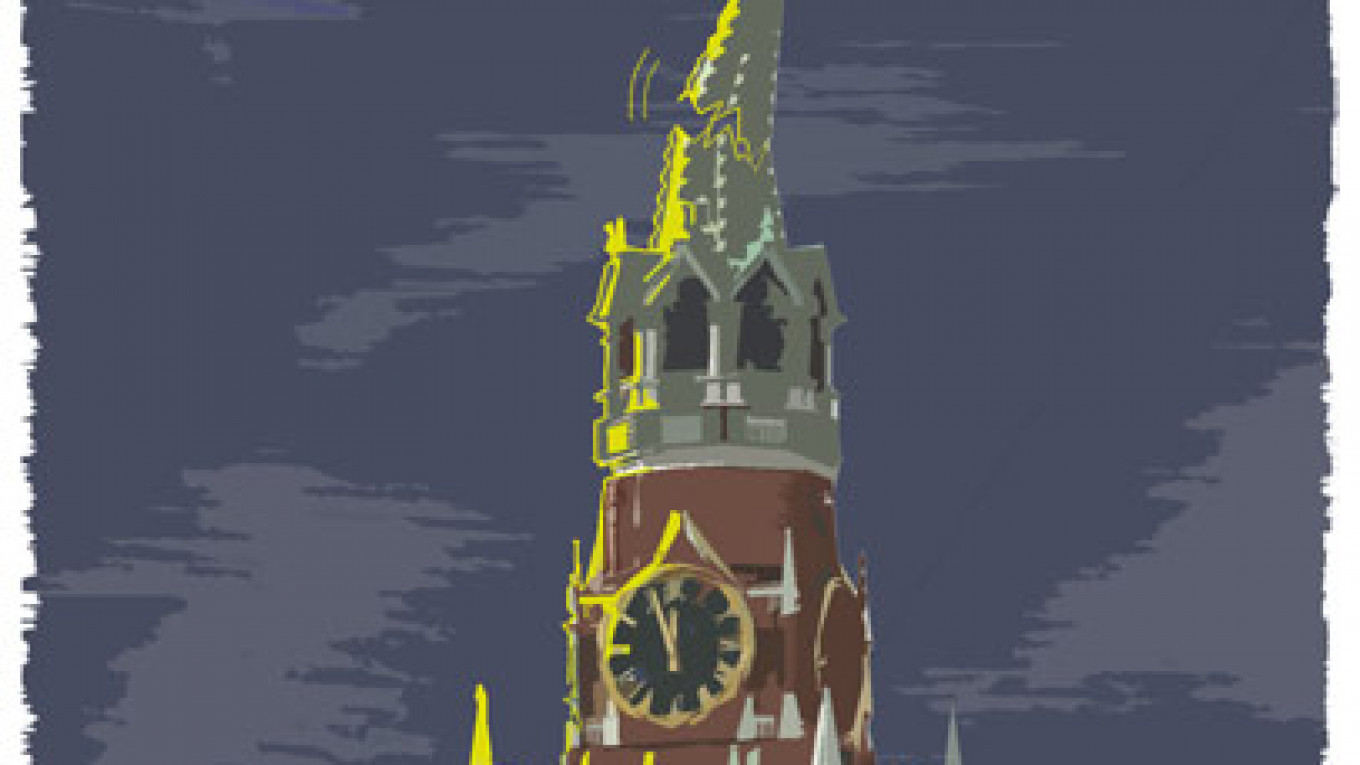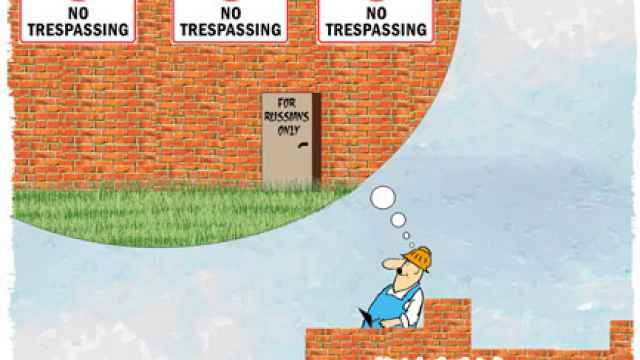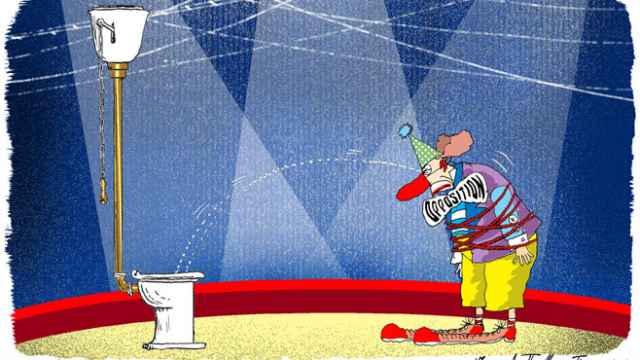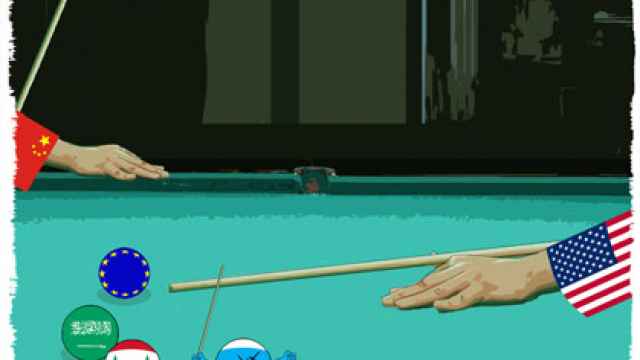One week after the Russian air force began military operations in Syria, predictions concerning how the situation in the Middle East and the world will develop have grown even worse than before.
Having discovered that the use of force in another country does not necessarily lead to wider sanctions and deepening isolation, Russia has nevertheless learned that military operations of that sort involve a tremendous number of recurring, growing and unpredictable risks.
And the main risks in this war might not be military, diplomatic or even macroeconomic in nature. As happened 100 years ago, war does not always rally the people together: Sometimes it causes a fatal split in society itself.
The problem is not only that, but by entering into open military conflict with the terrorist Islamic State, Russia has seemingly forgotten that a "local branch" of the Islamic State exists on its own territory in the form of a network of radical Islamic groups in the North Caucasus and Volga region.
A country usually makes a frank assessment of its military, economic and domestic political resources before launching a military campaign. In most countries, leaders take a serious political risk with the decision to go to war.
The decision-makers in democratic countries generally have a very narrow window of opportunity for using force. After all, with people free to express their opinions, some will support, and but many will also oppose such a move, making a unanimous decision unlikely. And if something goes wrong — the war drags on or exacts too high a cost in human life or taxpayer money — the number of dissenters will invariably grow.
Elected leaders risk losing re-election if a war progresses other than planned, and so they tend to delay the decision until they have a clear plan for achieving victory as quickly as possible and with minimal losses.
In Russia, that situation is reversed. Leaders make the decision to go to war to quiet internal dissent and military operations are viewed as a reliable means of reducing, not increasing risk. Even many implacable critics of the Kremlin's actions in Crimea and Ukrainian politics have spoken out in support of its military operations in Syria, creating the impression that the ruling regime has only further cemented its hold on power.
However, that is a dangerous illusion.
First, even 99 percent popular support for a political move does not mean that the decision was the right one or that it serves the real needs of society. If the decision did not emerge from the will of the majority, the ex post facto support of that majority does not give it legitimacy. To the contrary, if a decision is made even in part to win the approval of the majority, the applause and cries of support from the masses only mean that the propaganda machine is working as planned.
Second, even that 99 percent of the population that is deeply impressed by the roar of the military aircraft flying over Syria is an illusion.
I know many people who wonder why so many Russians are wildly enthusiastic over the use of this country's military might in foreign countries. Of course, I am talking not of militant Islamist groups with direct ties to the Islamic State, but about the entire Muslim community of Russia in all its diversity.
Various estimates put the number of Muslims in Russia at 15 million, and the overwhelming majority of them are Sunnis. Most follow news reports from the Middle East where Syrian President Bashar Assad and his Shiite allies are hardly seen as heroes. However, most of these Muslims do not feel that simply because Russia supports Assad, they are ready to act against Russia.
Of course, some do hold that view, and officials estimate that several hundred Russian Muslims are fighting for the Islamic State in the Middle East. That creates security problems for Russia that will undoubtedly only worsen in the current situation. However, hundreds or even thousands of Islamists are still a far cry from this country's 15 million.
For the vast majority of them, the path of armed jihad was never a serious alternative to school, a good job, a happy marriage and the chance to raise children. Assad is not their hero, but they also have no desire to go to war against him. However, a natural question arises: What kind of a society is it that, on one hand claims they are equal citizens, but on the other derives such pleasure in seeing warplanes bomb their fellow believers in Syria?
In fact, Russia's Muslims cared little about the Russia-Georgia war in 2008, a conflict that elicited an enormous surge of patriotism and flag-waving among the general population. The same was true concerning the annexation of Crimea, an event that drew the attention of only those Muslims in Dagestan and Tatarstan who worried about the fate of the peninsula's Crimean Tatars.
And yet, all that time Russia's Muslims closely followed developments in Syria, Iraq, Afghanistan, Yemen and even the Muslim regions of Africa and the southern Sahara. And of course, the current developments in Syria could not go unnoticed.
And it turns out that Russian Muslims are not so much interested in the tactical map of Syria and the way ethnic and religious conflicts have torn that country apart as they are in the situation in Russia itself. They ask themselves: "What is this Russian majority that constantly needs another war beyond its borders in order to prove itself to the world?" And they realized that it is difficult to fit into a society that defines itself by expressing euphoria over the war in Syria — a war that kills Muslims.
The subtleties of the political and inter-religious issues in that conflict are of little concern. One part of Russian society says, "We are delighted that our government is on an escapade in Syria, no matter how risky it might be." Meanwhile, another part of society — and not only Muslims — is saying: "Do you really need wars to admire your government? Is it war, and not economic development or honest courts that can guarantee your children's future and give the country good roads?"
The Russian public's mood this fall is strikingly reminiscent of that found in the papers and memoirs of World War I: Both then and now, war is initially an anesthesia that numbs society to its true condition. (Never mind that the scale of the two wars differs greatly: It is yet to be seen how events will develop in Syria.)
That sense of pleasant numbness will continue until it becomes clear that the war only multiplies the schisms within a society that has nothing but war euphoria holding it together. And that euphoria, like anesthesia, will wear off quickly.
Ivan Sukhov is a journalist who has covered conflicts in Russia and the CIS for the past 15 years.
A Message from The Moscow Times:
Dear readers,
We are facing unprecedented challenges. Russia's Prosecutor General's Office has designated The Moscow Times as an "undesirable" organization, criminalizing our work and putting our staff at risk of prosecution. This follows our earlier unjust labeling as a "foreign agent."
These actions are direct attempts to silence independent journalism in Russia. The authorities claim our work "discredits the decisions of the Russian leadership." We see things differently: we strive to provide accurate, unbiased reporting on Russia.
We, the journalists of The Moscow Times, refuse to be silenced. But to continue our work, we need your help.
Your support, no matter how small, makes a world of difference. If you can, please support us monthly starting from just $2. It's quick to set up, and every contribution makes a significant impact.
By supporting The Moscow Times, you're defending open, independent journalism in the face of repression. Thank you for standing with us.
Remind me later.






